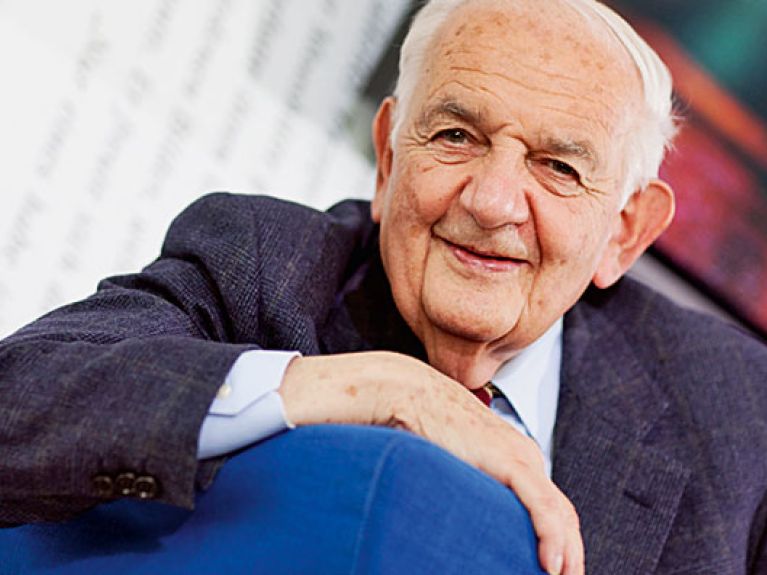Responsibility before history
Alfred Grosser on the “Franco-German locomotive” and ways out of the euro crisis.

When Charles de Gaulle came to the end of his triumphant visit to Germany in September 1962, Federal Chancellor Adenauer wrote to Robert Schuman, the former French foreign minister, that he had thought of him frequently and full of gratitude in the previous days. This was a reference to 9 May 1950, the day on which the Schuman Declaration on the reorganization of Europe laid the foundation stone for the “Franco-German locomotive” and for Europe. At the time Adenauer immediately understood the message, as did two other later founding fathers of the European Union, the Italian Alcide de Gasperi and the Belgian Socialist Paul-Henri Spaak. This meant yes to Germany and France – they will be celebrating the 50th anniversary of the Treaty on Franco-German Cooperation in 2013 – as the driving force for a united Europe, but not as the only driver.
A decisive role was never played by the party political affiliations of the protagonists who were later to determine Europe’s destiny. Neither the duo of Helmut Schmidt and Valéry Giscard d’Estaing nor the tandem of Gerhard Schröder and Jacques Chirac used their party cards to determine the course of Franco-German relations. The boldest team were without doubt the Conservative Helmut Kohl and the Socialist François Mitterrand, supported by the then European Commission President Jacques Delors.
Creative compromise
It should be remembered in the present crisis that shortly before the creation of the euro almost nobody believed in the introduction of the common currency. We should therefore hope that the future will be better than reason suggests. That again presupposes a Franco-German joint effort that will move the other EU partners forward. The fact that the new president of France, François Hollande, is a Socialist should be no obstacle to this. As a party man he is close to German Social Democracy, but as president his “only” real partner is the Christian Democratic chancellor, Angela Merkel. The largest obstacle for the Merkel/Hollande duo probably lies in their different basic convictions. Real monitoring of the budgetary policy of recipient countries, more joint authorities, a surrender of sovereign rights and greater European federalism are required for Germany to be able to continue giving financial guarantees. On the French side, however, there is a prevailing belief in the power of coordinated government decisions. Paths towards a creative compromise are discernible, but with one not completely insignificant limitation: Berlin is neglecting European institutions and arguing as if it were important to invent new ones.
The euro stands at a crossroads
The French parliamentary elections have presented François Hollande and the French Socialist Party with a historic majority and thereby opened up a broad political and temporal horizon for shaping the future. The Federal Chancellor is also not only governing with an eye to the Bundestag elections of September 2013. Both of them, Hollande and Merkel, could benefit from forward-looking joint action, provided they convince others in the process and use European institutions. A kind of core Europe should be created, one that is open to all as soon as they wish to participate. In a community of 27, soon 28, you cannot wait for everyone, and there are ways of acting without doing that.
The euro stands at a crossroads. Perhaps, for that very reason, eyes will be opened and they will see what is at stake in this situation. Many Germans and French are currently indulging in a plaintive, reproving euroscepticism. Angela Merkel and François Hollande should thus clearly repeat in their own words what Jacques Chirac announced as a young prime minister in July 1974: “European policy is no longer part of our foreign policy. It is something else and cannot be separated from the goals that we have set for ourselves.”
Alfred Grosser was born in Fra nkfurt am Main in 1925 and has been a French citizen since 1937. The author is professor emeritus of political science at the Insitut d’Études Politiques in Paris, holder of the Peace Prize of the German Book Trade as well as many other distinctions and prizes. Alfred Grosser sees himself as a “mediator between French and Germans, believers and non-believers, Europeans and people of other cultures”
